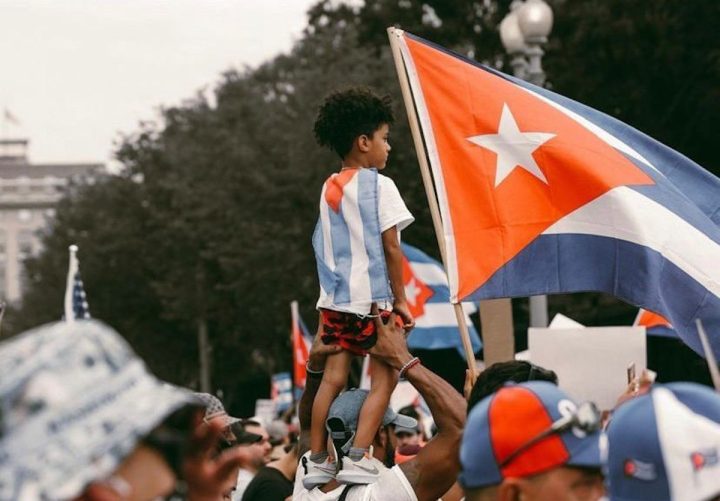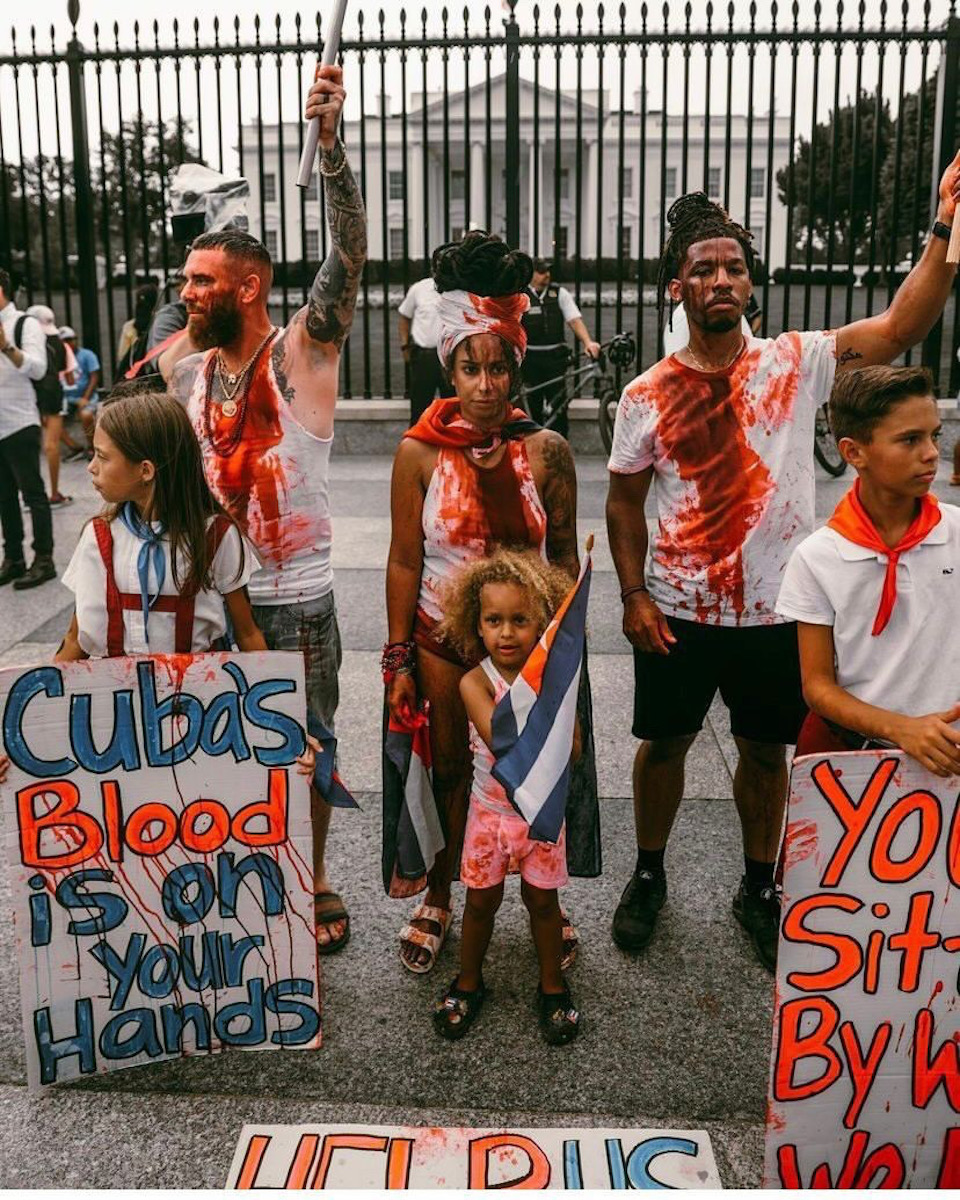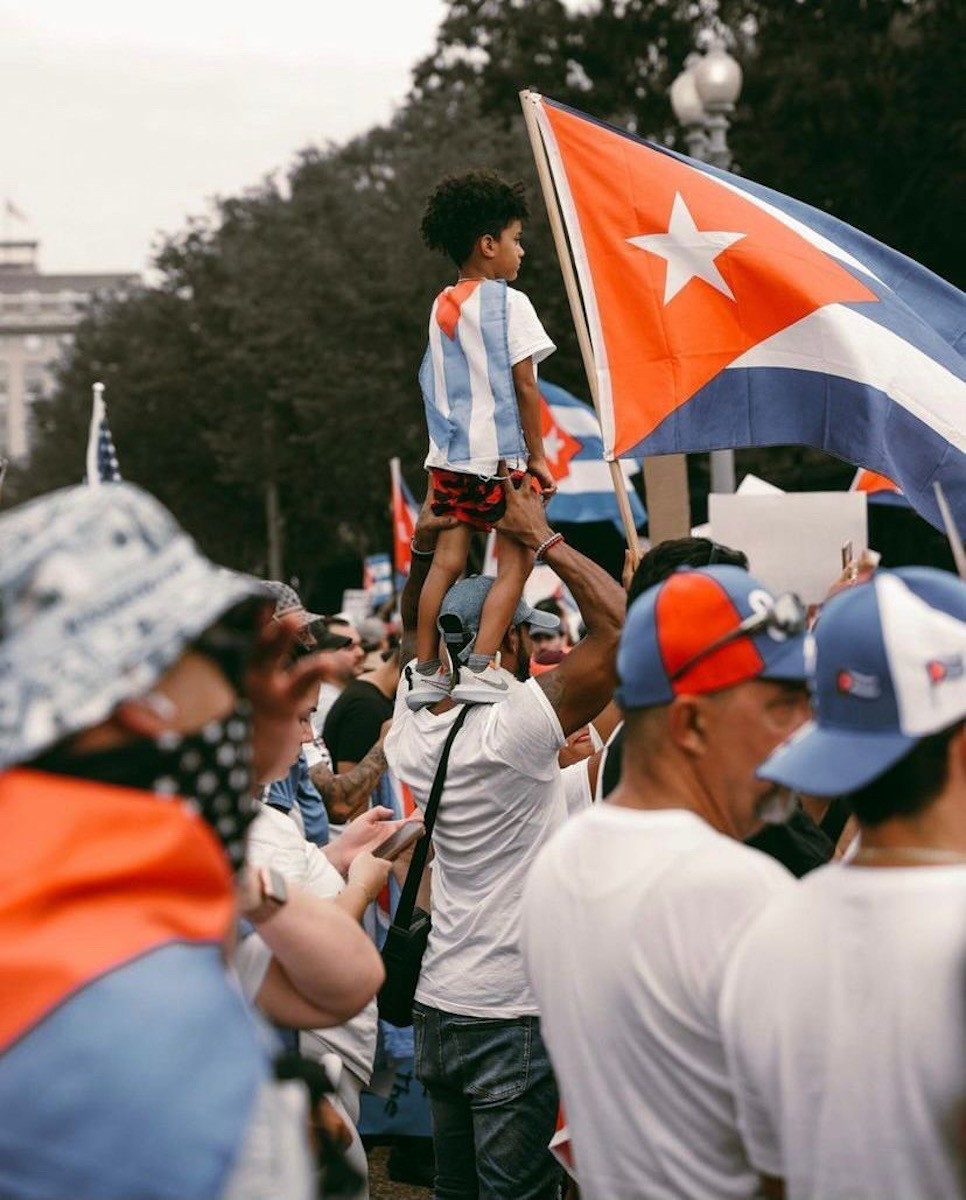

Amid food and medicine shortages and worsening living conditions exacerbated by the COVID-19 pandemic, Cuban people have taken to the streets in the largest protests on the island in nearly three decades. As anti-government sentiment intensifies, so does the state’s crackdown on dissident voices, among them artists involved in the 27N and San Isidro activist movements fighting Cuba’s harsh restrictions on freedom of expression.
Artist Luis Manuel Otero Alcántara, detained on Sunday, July 11 while on his way to join the protests at Havana’s Malecón boardwalk, is set to be transferred to the Guanajay maximum security prison, according to sources familiar with the situation. He faces charges of contempt, resistance, and assault — accusations commonly leveled by the Cuban regime against Alcántara and other vocal advocates for artistic liberties in Cuba.
“I’m going to the Malecón, whatever the cost,” Alcántara announced in a video streamed on his Facebook on the day protests broke out. “Enough of political prisoners, we want democracy.”

In May, the artist was forcibly hospitalized in Havana by state security agents when he began a thirst and hunger strike in response to police raids on his home and the confiscation of several artworks. Artists Dawoud Bey, Theaster Gates, John Akomfrah, Julie Mehretu, and Carrie Mae Weems were among the signatories of a letter calling for his release, granted after nearly a month in state custody. Another artist, Hamlet Lavastida, remains behind bars at the notorious maximum-security prison Villa Marista, where he was taken three weeks ago upon his return from a residency at Künstlerhaus Bethanien in Berlin. An update on artist Tania Bruguera’s Facebook page today said she was taken away for questioning by government authorities this morning, “dressed in black, the color of mourning, for all the detained and disappeared Cubans.”
The violent repression of opposition groups, fervently denounced by human rights organizations including Amnesty International, is par for the course on the island. But the current wave of protests is without precedent in recent years: the last time Cuban citizens openly rallied against the Castro regime at that scale was during the August 1994 uprising or “Maleconazo,” which prompted an exodus of more than 30,000 Cubans by sea.

The hashtag #SOSCuba circulated massively on social media in the last 10 days and has become a clarion call for reform and spurred a veritable movement around the world, with tens of thousands flooding the streets in solidarity from Miami’s Little Havana to Uruguay and Amsterdam.
Prominent cultural figures such as Bruguera have circulated the hashtag along with two others — #PatriaYVida (“Homeland and Life”), the title of a hiphop song that has become a cry for Cuban liberation; and #Desaparecidos11J, a reference to the political prisoners taken on July 11, the first day of the demonstrations. The Museo del Barrio in New York City’s East Harlem posted a message of “strength and prayers for the resilient people of Cuba” along with an image of a work by Cuban artist Carlos Martiel on view in its current Latinx art triennial.
“The pandemic and the economic situation were the straw that broke the camel’s back, but this has been a longtime rumbling,” said Marissa Daniela, a Cuban-American content creator who recently lived in Havana, in an interview with Hyperallergic. “It’s been years of inefficiencies and mismanagement by the government.”
The Cuban government has characterized the demonstrations as subversive actions orchestrated by US-based “mercenaries,” and blames the country’s longstanding embargo for its economic woes. “Cubans know perfectly well that the government of the United States is principally responsible for Cuba’s current situation,” said the foreign ministry in a recent Tweet. “Cuba and its streets belong to the revolutionaries.”
“Of course the US embargo doesn’t help the economic situation, but economies are very nuanced. There’s been multiple domestic policies the Cuban government has implemented in the last few years that have completely devastated the country,” Daniela said. “And the embargo has nothing to do with the human rights violations we’ve seen in the last week from the Cuban government.”
Yesterday, in response to the protests and deepening poverty on the island, US President Joe Biden ordered a review of the US policy on remittances — funds sent to Cuban relatives, estimated to be between $2 billion to $3 billion annually, that represent one of the main sources of income for families in the country.
But the Cuban regime has not shown signs of loosening its grip on anti-government dissent. An estimated 500 demonstrators who participated in last week’s peaceful protests have been detained, and many of them face charges of inciting unrest. The organization Human Rights Watch describes the regime’s repression of protesters as “brutal,” with Cuban President Miguel Díaz-Canel publicly urging citizens and security forces to “go to the streets and defend the revolution.”
Today’s post on Bruguera’s Facebook, which is managed by the artist’s studio team, says the Cuban government has deliberately eluded responsibility for the recent civil discontent, distorting the role of dissidents like Bruguera to conceal the system’s inherent deficiencies.
“This interrogation is part of the government’s campaign to find ‘leaders’ to blame for the actions of #11J,” the post says. “Instead of acknowledging that it’s the people who have said ‘enough’ to #Abuse and #Oppression.”
0 Commentaires